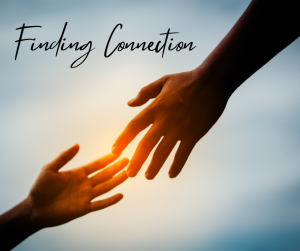 A word from Karen Moseley, President & CEO of HERO
A word from Karen Moseley, President & CEO of HERO
COVID finally caught up with me. After more than two years, I wasn’t able to outrun it any longer and I can now personally attest to its nastiness. I’ve been one of the lucky ones to have a mild case and to be able to recover from home. I’m fully vaccinated, and I have the access and ability to choose healthy habits: a balanced diet, daily exercise, good sleep hygiene. My experience is foreign to that of so many workers who simply cannot isolate from others who share their home, or to take time off from work without financial repercussions, or to receive care from a family member who has the flexibility to work from home. I’m also surrounded by a supportive network, at home, and at work, allowing me the time I need to rest and recover. And all of this as I sit in another country where I’ve been traveling and working remotely for the last two months. I readily acknowledge the extreme privilege of it all.
Yet, I’ve not been immune to the sadness, embarrassment, and isolation that are companions to COVID-19. Atlas of the Heart, by Brené Brown, has been at the top of my reading pile lately. She includes “sadness” in the list of “Places We Go When We’re Hurting”
“Feeling sad is a normal response to loss or defeat, or even the perception of loss or defeat.”
Yes, I feel defeated. Had I been infected at the beginning of the pandemic, I might have felt guilt or even shame —“the intensely painful feeling or experience of believing that we are flawed and therefore unworthy of love, belonging, and connection”— but I know that I’m loved and not alone so I have a reprieve with the simple, fleeting feeling of embarrassment. This pandemic has normalized our use of ‘quarantine’ and ‘isolation,’ therefore it’s not hard to empathize with temporary feelings of isolation, disconnection, or even loneliness. However, many of our colleagues are experiencing chronic loneliness, and I’m grateful for HERO partners, like The UnLonely Project and the Coalition to End Social Isolation & Loneliness, who are working against this epidemic.
Earlier this month, HERO’s Winter Think Tank focused on “Changing Boundaries, Changing Benefits” to address the new demands of an unfamiliar, post-pandemic workplace. Lisa Berkman focused us on three (3) principles to “change the workplace – not the worker”: (1) give workers more autonomy; (2) rein in excessive job demands; and (3) improve social relationships at work. Beth Livingston presented the art of work-life crafting and how individuals and employers can create balance again. Leigh Stringer helped us envision buildings as instruments of public health. And Patti Rittling revealed new ways to think about traditional benefits. HERO members already have access to the recordings from this Think Tank’s experts and will soon have the companion key takeaways report in the Member Resource Center. I’m grateful that HERO as an employer is ever-ready to evolve with these changing times.
Looking ahead to the virtual Summer Think Tank on “Individual and Organizational Assets that Boost Belongingness,” I can’t help but return to Brené Brown’s insights:
“True belonging is the spiritual practice of believing in and belonging to yourself so deeply that you can share your most authentic self with the world and find sacredness in both being a part of something and standing alone in the wilderness. True belonging doesn’t require you to change who you are; it requires you to be who you are.”
As I sit here, 800 miles from the border of a war-torn Ukraine, I’m struck by our collective humanity and how quickly the world has responded to their suffering. During recent trips, I’ve been moved to tears at the demonstrations of support for the Ukrainian people, from the uniformed helpers awaiting their arrival at the Paris train station to the border control accommodations at the Dublin airport. According to Brown, all people need love and belonging, the absence of which is suffering. If you’re seeking ways to support Ukraine, HERO has started a list.
One final note, I hope you’ll forgive the rambling nature of this reflection written in the middle of my COVID experience.
Be well,
Karen
PSA: Get vaccinated and wear a mask in public when your gut tells you to, even if no one else is.
Source: Brown, Brené. Atlas of the Heart: Mapping Meaningful Connection and the Language of Human Experience. Random House Publishing Group, 2021.

Comments are closed.
Karen,
Thanks so much for sharing your story and your perspective. You are an exceptional individual who leads with heart, integrity and inspirational reflection. Hope you and your husband stay safe.
Xoxoxo